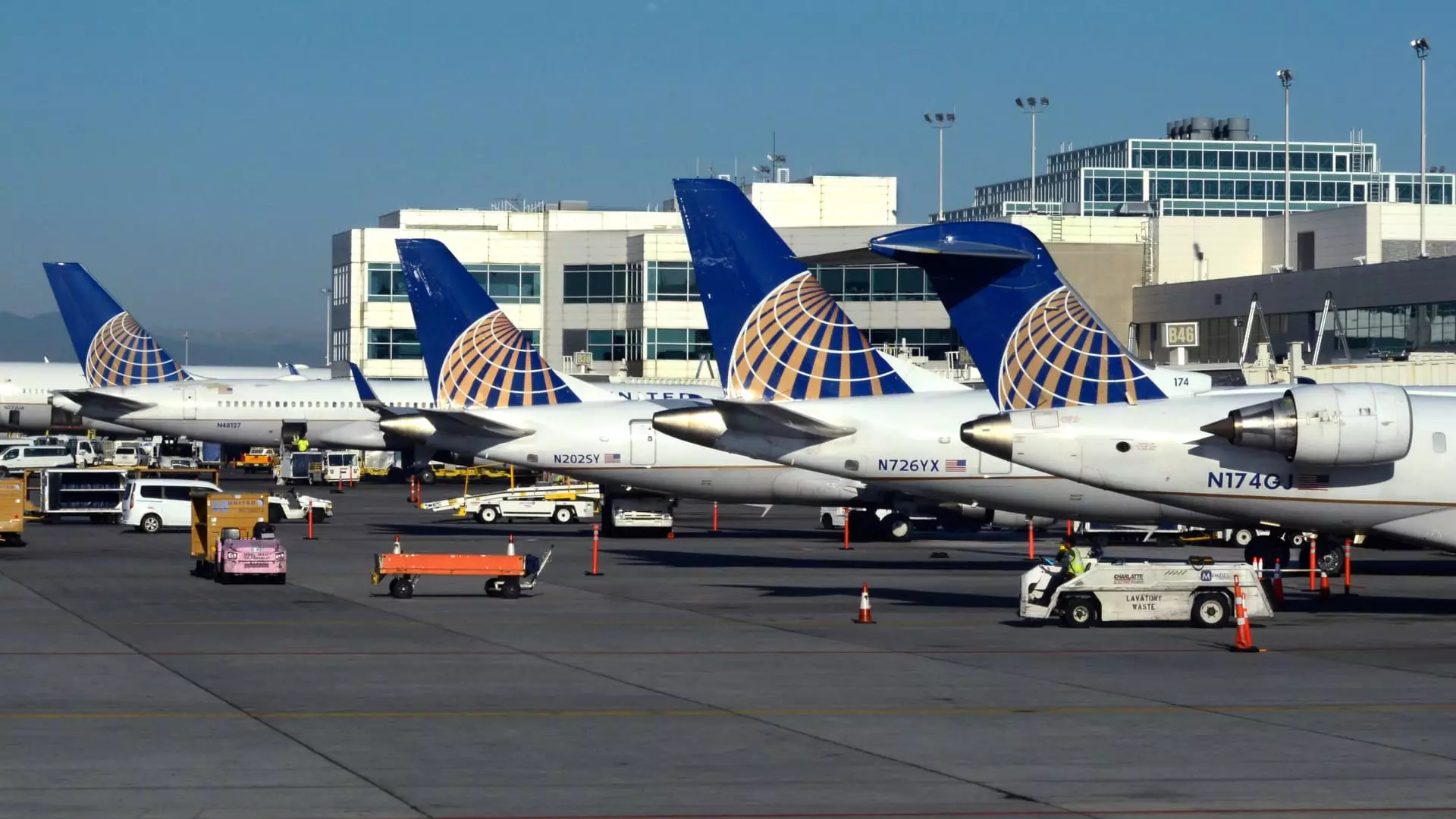In a bold yet controversial move, United Airlines has decided to hike fees for annual airport lounge memberships and rewards credit cards. While this might seem like a reasonable business strategy, the underlying implications of such price increases indicate a disturbing trend toward exploitation, leveraging consumer loyalty for profit. The logic employed by companies like United, positioning these hikes as responses to rising operational costs, often conveniently ignores the soaring revenues they accrue from numerous other avenues. For consumers, these changes signal a troubling dynamic: airlines appear more focused on profit margins than customer satisfaction.
The Pretense of Added Value
Richard Nunn, the chief executive of United’s MileagePlus loyalty program, claims that the increased fees will be offset by enhanced benefits like rideshare credits and award flight discounts. However, this assertion raises valid skepticism. When examining the tangible benefits, one cannot help but question their actual value compared to the increased cost consumers will incur. Delta Air Lines and American Airlines have followed similar paths, and while they tout superior perks, many customers feel disillusioned when those perks don’t measure up to their rising costs. The real concern is whether these benefits are simply a smokescreen to justify profit-driven decisions rather than genuine enhancements to customer experience.
Modern-Day Class Divide
The recent changes in United’s offerings also spotlight a growing class divide in air travel. As airlines have increased fees and tightened entry requirements for airport lounges, a sense of exclusivity has been created among those who can afford premium credit cards and memberships. This creates a two-tiered system within the flying public. Elite status, once a nod to frequent travelers, now stands as a clear demarcation line, indicating who has access to more comfortable commuting experiences and who is relegated to enduring crowded terminals. This shift does more than inconvenience; it fosters an environment of resentment among passengers who feel entitled to fair access to airline amenities regardless of their spending.
Pursuit of Loyalty Revenue
The drive for loyalty revenue has become increasingly essential for airlines, with United pulling in a staggering $3.49 billion in “other” revenue last year, primarily from co-branded credit card spending. This number reveals just how entrenched commercial interests have become in the airline industry. Consumers who used to enjoy straightforward travel experiences are now subjected to relentless pushes for loyalty card memberships, reward points, and exclusive access, all of which come with escalating costs. The irony lies in the airlines’ reliance on customer loyalty while simultaneously undermining the very trust that engendered that loyalty in the first place.
The Future of Air Travel
As United Airlines unveils its fee increases, it serves as a microcosm of a broader trend within the aviation industry. Consumer trends show that while travelers are increasingly willing to spend on conveniences, they also demand solid justifications for their expenditures. The real challenge for United and other airlines moving forward lies in balancing profitability with genuine customer engagement. If the focus remains solely on enhancing revenue streams, airlines risk alienating a growing segment of customers who may eventually gravitate towards more transparent and fair travel options. As the aviation market evolves, so too should its approaches to consumer loyalty and pricing strategies.

